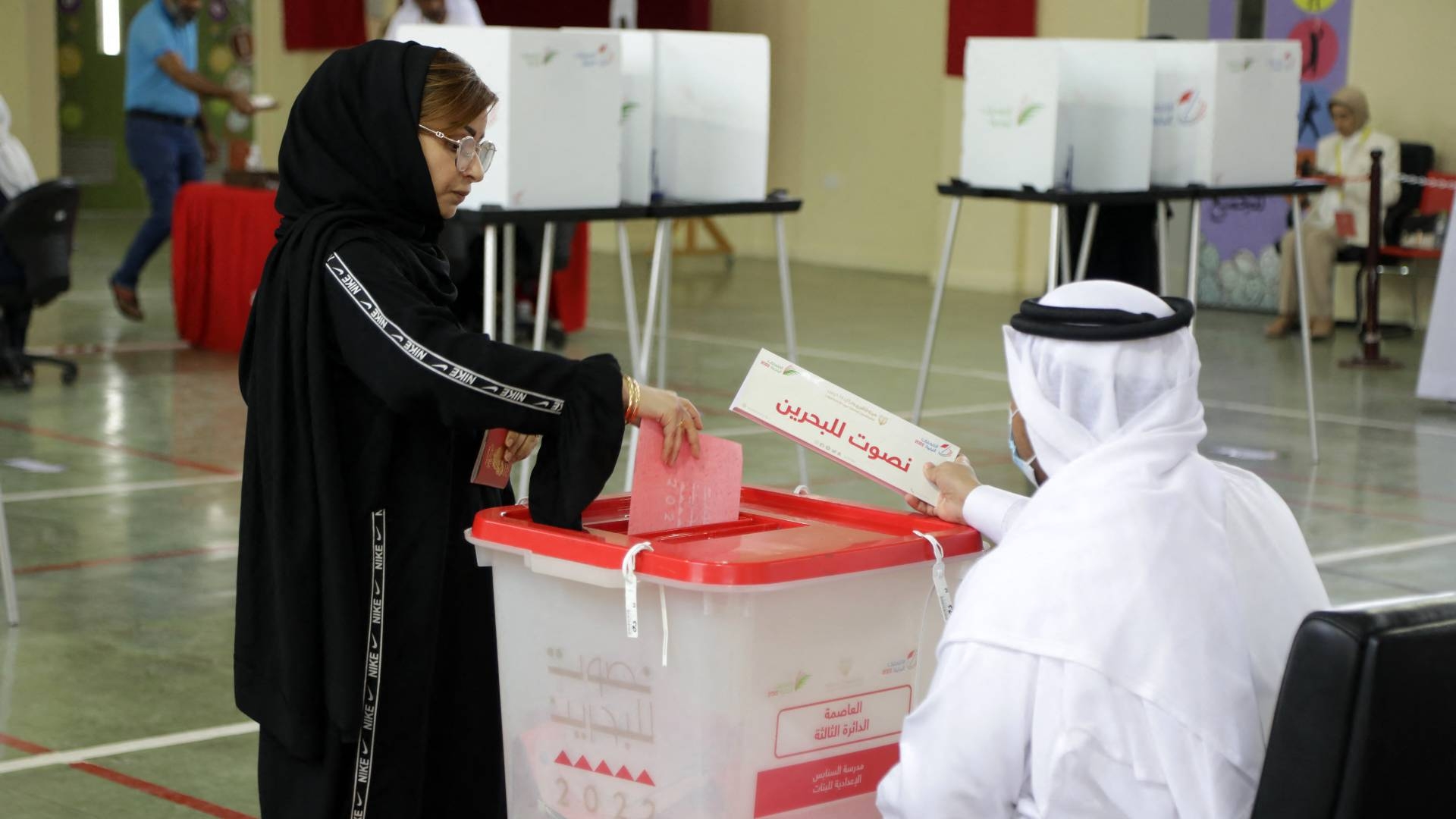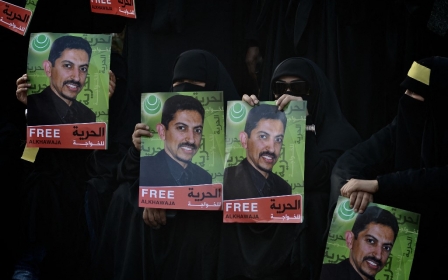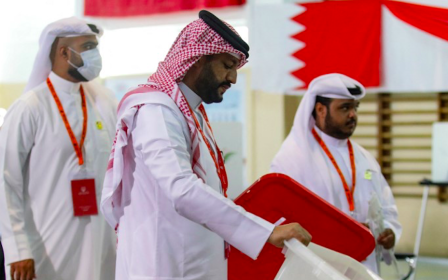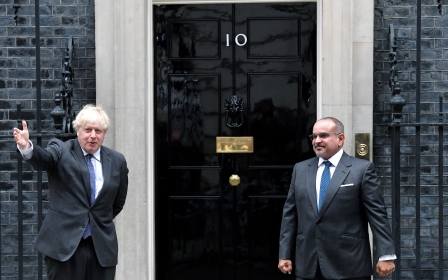Bahrain's laws prevented tens of thousands from voting, report reveals

Bahraini laws prevented tens of thousands of citizens from casting their votes in the 12 November general election, according to a report presented to the UK parliament.
The Bahrain Institute for Rights and Democracy (Bird) human rights group detailed in "The Entire Political Process is Fraudulent" report the complex laws that the Bahraini government has enforced to bar dissidents, civil society activists and people with minor offences from voting or running in the elections.
The Gulf kingdom held a parliamentary election last week. Although the country has a parliament, which was established in 2002, King Hamad bin Isa Al Khalifa retains the power to veto any legislation.
According to Bird, an estimated 80,000 people were unable to stand for elections under the political isolation laws of 2018, which bar members of banned opposition groups and former prisoners from running for electoral office.
New MEE newsletter: Jerusalem Dispatch
Sign up to get the latest insights and analysis on Israel-Palestine, alongside Turkey Unpacked and other MEE newsletters
Bird's study of Bahraini government data revealed another 71,467 citizens that were denied the right to vote without going through a lengthy appeal process. The group described the election as "a false veneer of democracy".
'Far from serving to fulfill the will of the people of Bahrain, these elections serve the purpose of maintaining the status quo'
- Josie Thum, a senior researcher at Bird
Alistair Carmichael, a Liberal Democrat MP and vice chair of the All-Party Parliamentary Group on Democracy and Human Rights in the Gulf, said in a news conference: "Free and fair elections are a lot more than just putting a vote in a box. You have to have a political environment where debate is allowed and not criminalised. Without a debate how do people make a decision."
On 8 November, Carmichael pushed for a motion calling the Bahraini government to free political prisoners, while a group of cross-party MPs asked the UK prime minister and foreign secretary in a letter not to recognise the outcome of the elections.
"Most of all, you cannot have elections in a country with political prisoners. It does concern me as a democrat in the UK and it should concern anyone in the world," Carmichael said on Wednesday.
Rabab Khaddaj, one of the report's authors, said the Bahraini government had removed the names of people who boycotted previous elections from the electoral register.
Bahrain said the turnout for the parliamentary elections was 73 percent, the highest since 2002. People voted to choose 40 MPs and 30 members of local councils, out of 507 candidates.
Khaddaj, a research and translation fellow at Bird, cast doubt on the official turnout figures.
"According to our calculations between 94,000 and 105,000 individuals have been excluded from the voter bloc which means that the actual voter turnout rate is a maximum of 57 percent," she said.
"[This is] lower than what is announced and far from being representative of the overall population in Bahrain."
The elections also took place while the two main opposition parties, al-Wefaq and Waad, remained banned, and several political leaders and human rights defenders are imprisoned.
Josie Thum, a senior research and policy associate at Bird, said Bahrain's "general elections will provide nothing more than a false veneer of democracy in a transparent attempt to legitimise what continues to be an undemocratic state ruled by a dictatorial monarchy".
"Far from serving to fulfill the will of the people of Bahrain, these elections serve the purpose of maintaining the status quo," she added.
Middle East Eye delivers independent and unrivalled coverage and analysis of the Middle East, North Africa and beyond. To learn more about republishing this content and the associated fees, please fill out this form. More about MEE can be found here.




